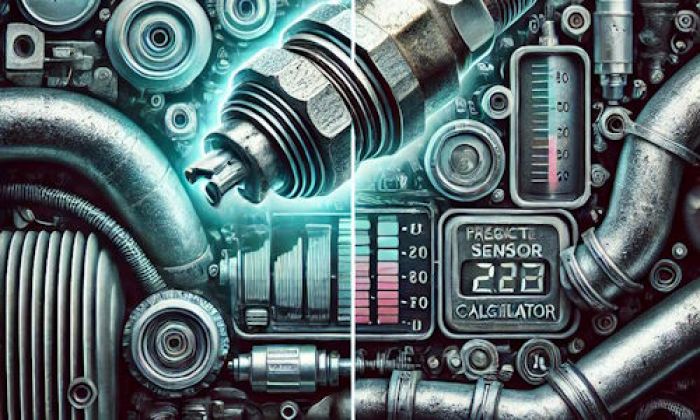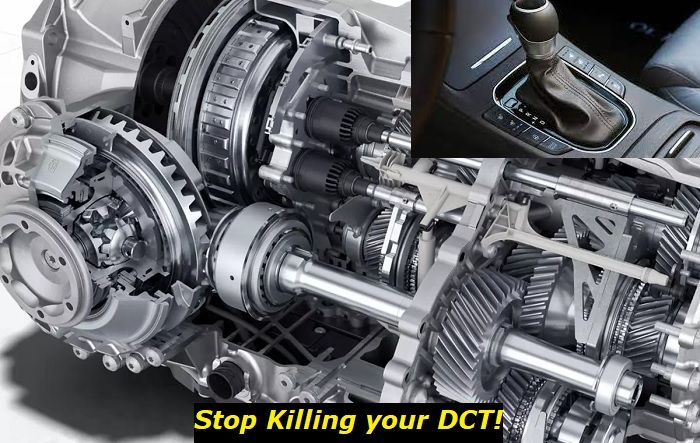If your transmission stops working after a few minutes, it's probably because the transmission is overheating. A transmission could overheat due to a variety of different reasons like low transmission fluid, dirty transmission fluid, or clogged filters. Mechanical issues and electrical issues are also known to cause your transmission to malfunction within a few minutes of operation. Whatever the problem is, proper diagnosis and prompt action can save you a fortune in repairs.
Transmission stops working problem highlights
- Level of importance:Medium
- Reasons:TCM problems, low fluid, shifter issues
- Needed expertise:High
- Needed tools:Professional tools set
- Time taken:3-8 hours
- Can you drive? Yes, if possible
- Possible issues:Torque converter damage, overheating, TCM damage.
Early Signs Of A Failing Transmission
If your transmission stops working after a few minutes, it could be a major issue with the transmission. But this doesn't happen out of the blue. It exhibits certain symptoms and if you can catch on to these symptoms at its early stages, you can ensure that you don't run into any transmission trouble.
1) Delayed Engagement
Delayed engagement is one of the earliest signs of a failing transmission. It is a telltale sign that something is either wrong with your transmission already or is going to hit your transmission soon. The problem can arise in both automatic and manual transmission and should never be ignored.
When you are driving an automatic, and you shift from park to drive or reverse or shift between any other gears, the transmission should engage instantly. When you are experiencing delayed engagement, you'll notice a distinct lag between the time you move your shifter and the time your transmission engages the gear.
Sometimes, there may be a delay of a few seconds when you shift gears in your vehicle. During this delay, your engine might rev as if it's in neutral, even though you've already selected a gear. When you press the accelerator, your vehicle may respond slowly and with a noticeable jerk or lurch before finally engaging. This can make your driving experience feel unsteady and unsafe.
In a manual transmission, even though the symptoms of delayed engagement are the same, the problem can also be caused due to the clutch. So further investigation might be necessary.
2) Slipping Gears
Slipping gears is another common symptom of a failing transmission. Gear slippage happens when your transmission fails to stick to the gear you've chosen. In a manual transmission, you can end up upshifting or downshifting without the driver's input. In an automatic transmission, this can feel like a momentary loss of power or a jarring jerk as the vehicle unexpectedly changes gears.
There are a variety of reasons why you might be experiencing gear slippage. If you encounter this problem, you need to get it diagnosed and fixed as soon as possible to avoid further transmission damage or even complete transmission failure.
3) Unusual Noises
Whenever your car makes a noise that is out of the ordinary, it could be trouble. Under normal circumstances, your transmission should operate smoothly and quietly. Even when you are shifting gears, it shouldn't make a noticeable sound. But if you hear noises like grinding, clunking, or whining, it is a clear sign of a potential transmission problem.
4) Warning Lights
Another clear indication of transmission issues is the warning lights. Any modern vehicle is equipped with a set of warning lights on the dash. These lights indicate any budding problems with the vehicle.
In most vehicles, the check engine light will represent any problems with the engine or related systems, which includes the transmission. While some other vehicles have a separate warning light for the transmission.
If the warning light illuminates, it is best to check it out as soon as possible. Use an OBD 2 scanner to read the error codes and easily diagnose the problem.
Why Does Your Transmission Stop Working After A Few Minutes
If your clutch stops working after a few minutes, it can be the result of various underlying issues. Here are some of the common reasons why your transmission might stop working after a few minutes.
1) Overheating
If your transmission stops working after a few minutes, chances are it is overheating. When the transmission fluid overheats, it loses its lubricative properties. When the components in your transmission aren't properly lubricated, it's only a matter of time before your transmission stops working.
Your transmission can overheat due to a few different reasons. It can be caused by using the wrong fluid for your transmission, towing heavy loads, driving in extreme heat, or problems with the transmission cooler.
2) Low Transmission Fluid
Transmission fluid is the lifeblood of your transmission. It works as a lubricant, as a hydraulic fluid, cools the transmission, and also cleans it. Insufficient transmission fluid can cause poor lubrication and hydraulic pressure in the transmission, which may lead to issues like slipping gears, difficulty engaging gears, or complete transmission failure.
But what can cause a drop in your transmission fluid levels? If you are running low on transmission fluid, there is a good chance that there is a fluid leak. Your transmission fluid can leak out of seals, gaskets, or the pan itself. So, if you are regularly running out of transmission fluid, check for leaks.
3) Contaminated Transmission Fluid
It is recommended that you replace your transmission fluid every 30,000 to 60,000 miles. This varies from vehicle to vehicle, so, it's worth checking your manufacturer's recommendation. And depending on your manufacturer's recommendations, you need to get your transmission fluid replaced.
As the fluid ages, it gets contaminated. So, after a point, it loses all its functionality. It loses its effectiveness as a coolant, it can't lubricate your transmission, and it also loses its hydraulic properties. So, continuing to drive with dirty fluid will lead to a plethora of problems, and eventually your transmission will stop working after a few minutes.
4) Worn Parts
Your transmission consists of numerous moving parts within it. And with all these metal components grinding against, wear is imminent. If you own a manual, you can expect it to last around 200,000 miles. An automatic lasts a bit shorter, so you should be able to get around 120,000 to 150,000 miles out of it. So, as your transmission ages, you'd have to get these worn-off parts replaced.
5) Clutch Issues
If your transmission stops working after a few minutes, the problem could also lie within the clutch. If you have an automatic transmission, you don't have to worry about clutch problems as they are only present in manual transmissions.
The clutch system is the bridge between the engine and the transmission. It allows you to smoothly shift between gears by engaging and disengaging the link between the transmission and the engine.
When certain parts of the clutch system become worn out or defective, it can result in challenges when shifting gears and improperly disengaging gears. These issues can ultimately lead to problems with the transmission of the vehicle.
What To Do If Your Transmission Stops Working After A Few Minutes
First things first, if you notice that your transmission is failing while you driving, getting off the road is the number one priority. Continuing to drive not only puts you in danger but also everyone else who is sharing the same roads. Find a quiet spot, preferably a parking lot, and bring your car to a halt.
Even if your transmission works fine once you keep it parked for a few minutes, continuing to drive is not a good idea. Unless you are close to a repair shop, or your house, the best option is to call a tow truck. Continuing to drive could only further damage your transmission.
Once you are in a safe space, you can try to diagnose and fix the problem. Here are some ways to fix your transmission if it stops working after a few minutes of operation.
1) Check Your Fluid
More often than not, transmission failures are sprung by the fluid. Check whether you have enough fluid. If you're running low on fluid, there is a chance that you have a leak. Before moving forward, you need to address that leak. The best way to do this is by replacing the gasket or the damaged component. But another simple DIY fix is to use a sealant at the source of the leak.
Next, check the condition of your fluid. Even if you have enough fluid, if it's contaminated, it's useless. So, you could try replacing your fluid. If your transmission isn't significantly damaged, this should solve your problem.
2) Check The Error Codes
If you have a diagnostic scan tool, scan for transmission error codes to gain insight into the problem. Once you have the error codes, it's a simple task cross-referencing to find the exact reason why your transmission stalled after a few minutes of operation.
3) Get Professional Help
If your transmission completely stops working, chances are that it has suffered major damage. Transmission repairs are quite complicated, so unless you are handy with automotive repairs, it is best to seek professional help.
You'd have to probably take apart the transmission and assess the damage. Depending on the severity of the damage the repair costs will vary. A complete transmission rebuild could cost up to $3000 in an independent shop.
About the authors
The CarAraC research team is composed of seasoned auto mechanics and automotive industry professionals, including individuals with advanced degrees and certifications in their field. Our team members boast prestigious credentials, reflecting their extensive knowledge and skills. These qualifications include: IMI: Institute of the Motor Industry, ASE-Certified Master Automobile Technicians; Coventry University, Graduate of MA in Automotive Journalism; Politecnico di Torino, Italy, MS Automotive Engineering; Ss. Cyril and Methodius University in Skopje, Mechanical University in Skopje; TOC Automotive College; DHA Suffa University, Department of Mechanical Engineering






Add comment